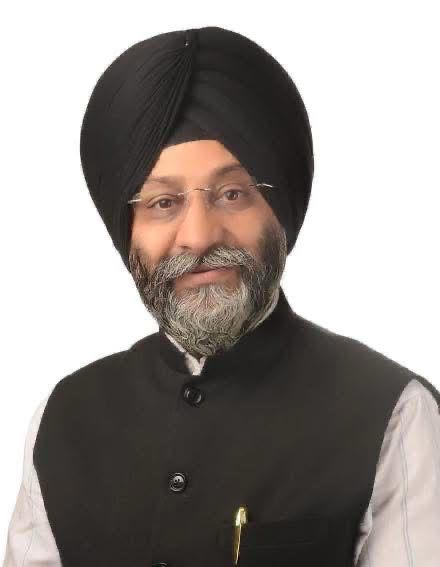 Early Times Report Early Times Report
JAMMU, June 26: On the occasion of the International Day Against Drug Abuse and Illicit Trafficking, a somber reality shadows the scenic beauty of Jammu and Kashmir. What was once known for its tranquility, spiritual depth, and rich cultural mosaic is now increasingly being recognized for a darker truth-its escalating battle with drug addiction. The region, already burdened with the legacy of conflict, now finds itself entangled in a crisis that threatens to corrode the very soul of its youth and society.
Chairman of the Guru Nanak Sewa Charitable Trust (GNSCT), Parvinder Singh, has raised a stark alarm about the deepening crisis. Speaking from the ground where his organization has been actively engaged in grassroots interventions, Singh portrayed a distressing picture. "The threat is real, the crisis is urgent, and our response must be united and uncompromising," he said, underscoring the gravity of the situation.
According to investigative reports cited by Singh, more than 70,000 youth in Kashmir are currently ensnared in substance abuse, with heroin addiction accounting for approximately 90% of these cases. Far from being a mere health concern, he warned, this has become a "ticking social time bomb". These figures paint a dire scenario where addiction not only devastates individuals but also destroys families, breaks community structures, and corrodes the moral and psychological foundation of an entire generation.
Adding to this grim picture is data from the National Crime Records Bureau (NCRB), which shows a sharp rise in cases under the Narcotic Drugs and Psychotropic Substances (NDPS) Act in districts like Jammu, Kathua, Samba, Anantnag, and Kupwara. Particularly worrying is the shift in drug consumption patterns: what began with cannabis and codeine-based syrups has now evolved into a far more lethal addiction to synthetic opioids and injectable heroin.
Singh pointed out that the situation in rehabilitation centers is deteriorating rapidly. "Our de-addiction centres in Jammu, Kathua, and Anantnag are overflowing. The numbers have doubled in the last three years. Sadly, children as young as 12 years old are now entering rehab," he lamented. For Singh, this is not just a matter of numbers-it is a humanitarian emergency unfolding quietly across urban centers and rural belts alike.
A particularly chilling aspect of this crisis is its geopolitical undercurrent. Singh highlighted what he termed "Narco-Terrorism"-the calculated infusion of drugs into India, particularly Jammu and Kashmir, by Pakistani handlers. Using drones and cross-border networks, these operatives are flooding the region with narcotics. "These are not just drugs-they are weapons of internal sabotage," he warned. The goal, according to intelligence inputs and various reports, is not merely profit but to destabilize India from within by targeting its youth.
"The situation is akin to hybrid warfare," Singh asserted, urging both state and central governments to recognize narco-trafficking as a strategic threat. He stressed that this issue cannot be resolved with isolated actions or short-term campaigns. It needs a coordinated, multi-dimensional response that treats drug abuse as both a public health crisis and a national security concern.
Ground reports from educational institutions and outreach campaigns by NGOs working in Rajouri, Jammu, Srinagar, Udhampur, and rural Pulwama reveal disturbing trends. Youth are turning to drugs due to a toxic mix of peer pressure, chronic unemployment, unresolved trauma from years of conflict, and a sheer lack of recreational outlets. Teachers report rising absenteeism, falling grades, and behavioural issues. Families, overwhelmed by stigma and financial strain, are often driven to desperate measures. Singh recounted a harrowing incident during an awareness drive in Gadigarh and Janipur where families had sold land and jewellery just to afford rehabilitation for their children.
Perhaps most alarmingly, the stigma around drug addiction is rapidly eroding the traditional perception that substance abuse is limited to marginalized groups. "Drug abuse has now crept into elite households, professional classes, college campuses, and even families of serving personnel. This monster doesn't discriminate," Singh warned.
Despite efforts by law enforcement, including record-breaking drug seizures by the Jammu Police and the Anti-Narcotics Task Force (ANTF), the region remains ill-equipped when it comes to long-term rehabilitation and psychological support. Singh particularly emphasized the lack of such facilities in sensitive districts like Doda, Poonch, and Bandipora, where infrastructure and trained personnel are sorely lacking. |
